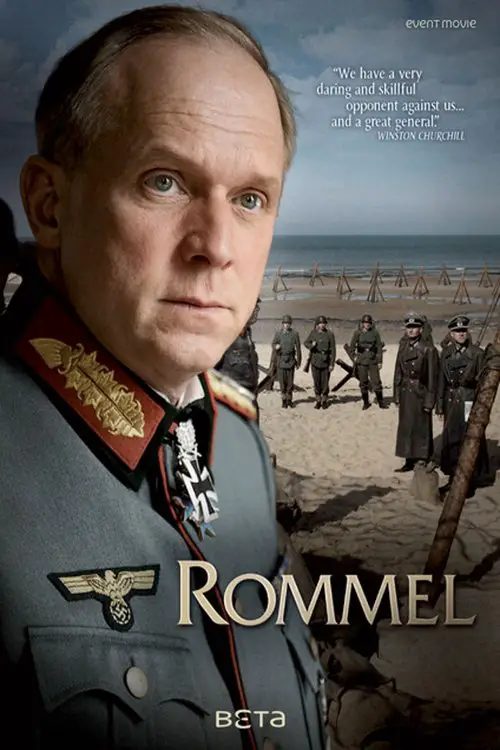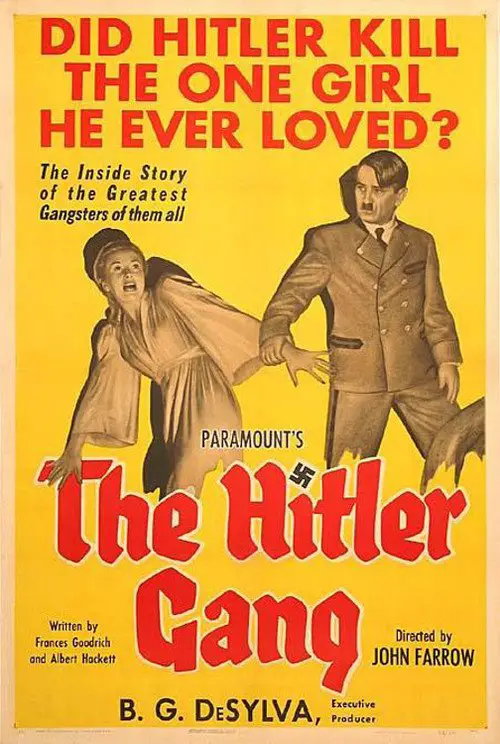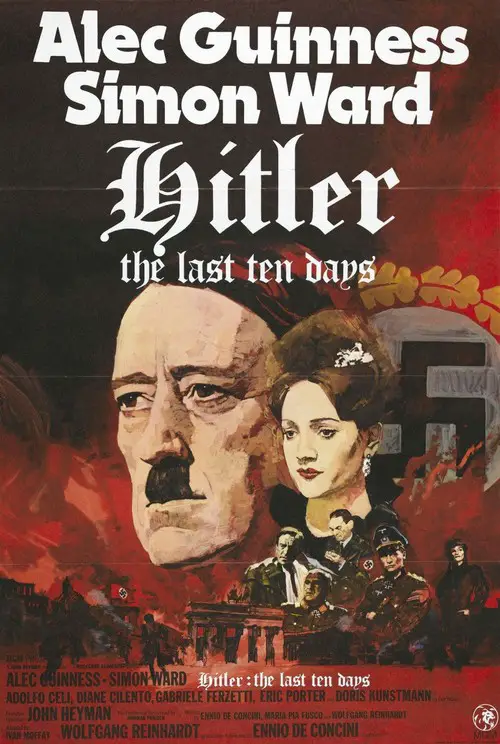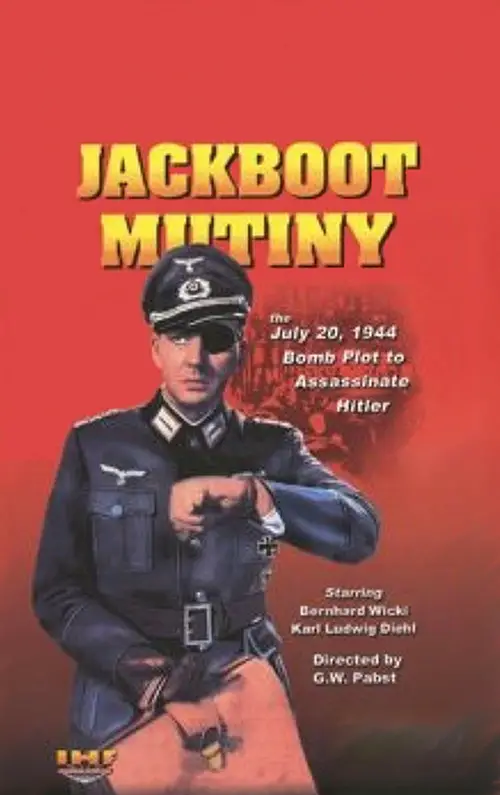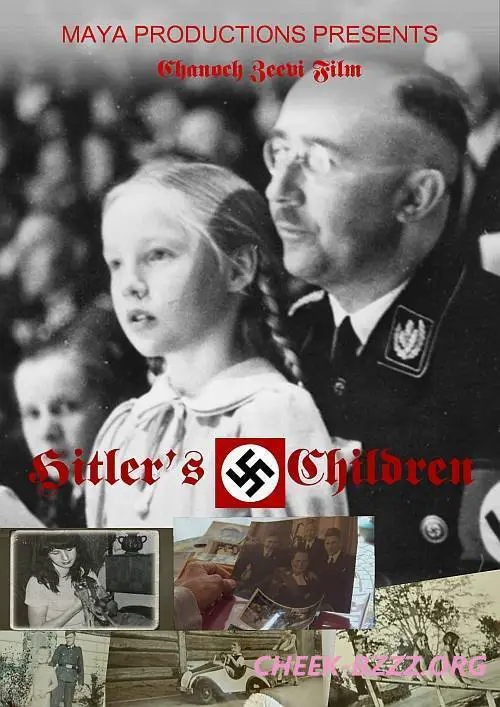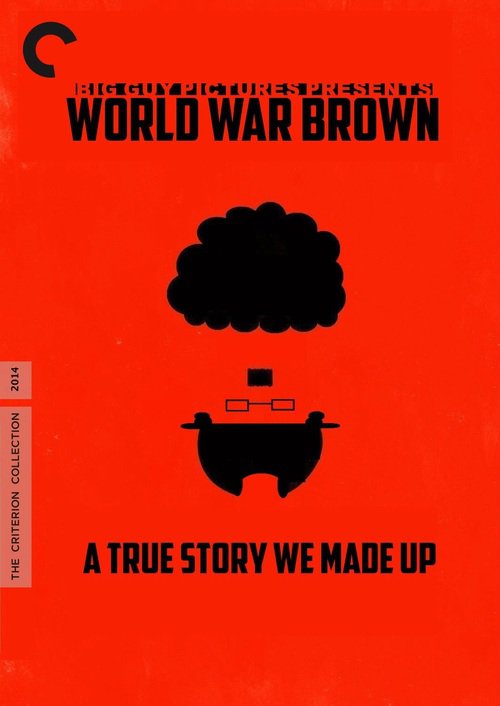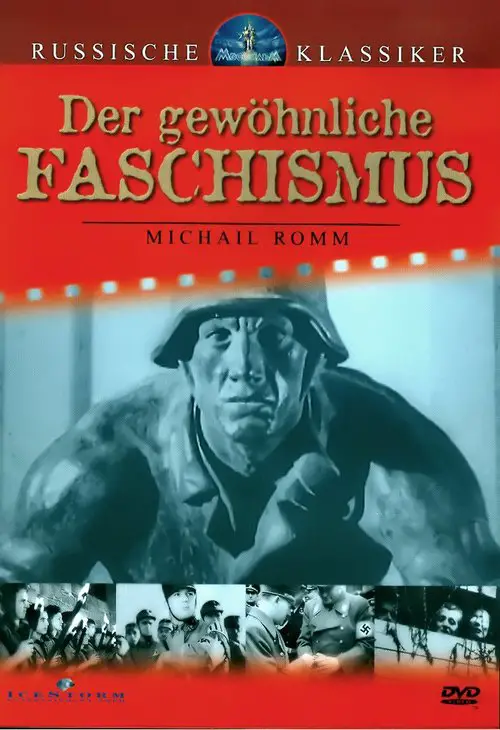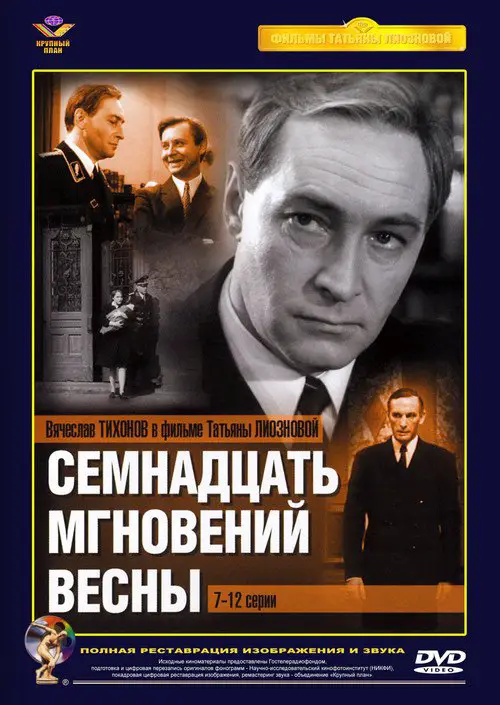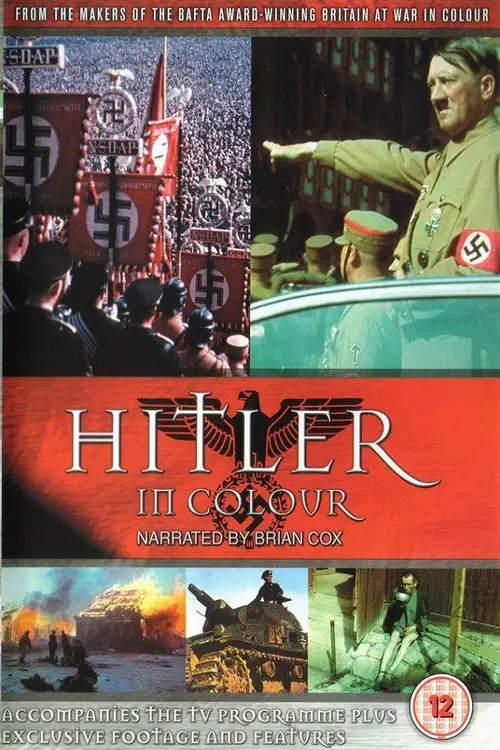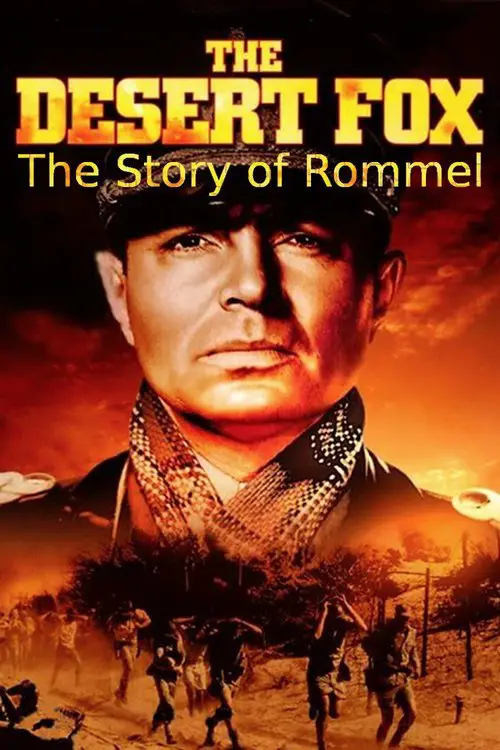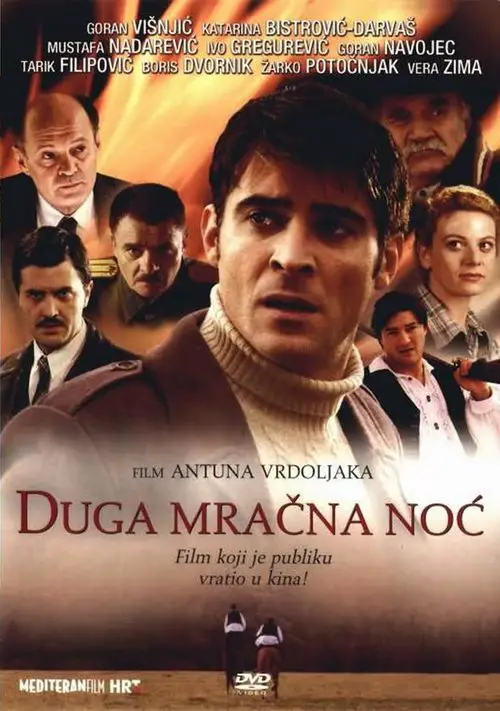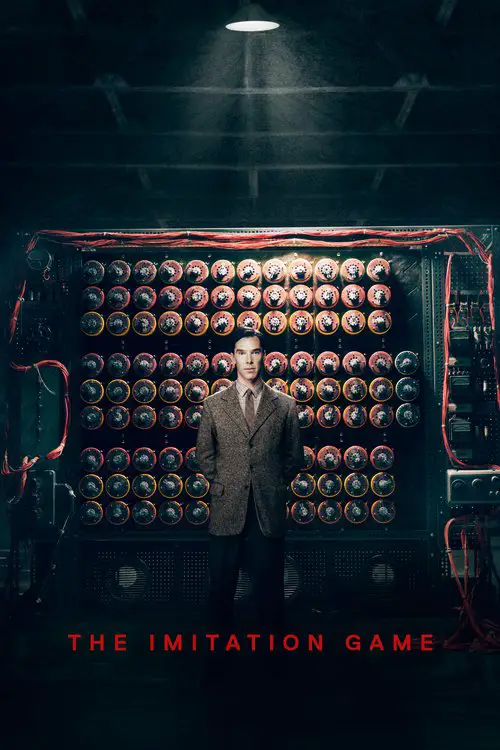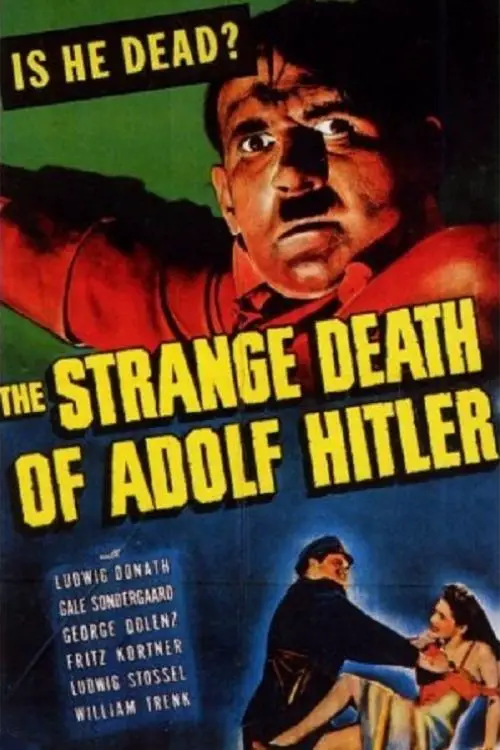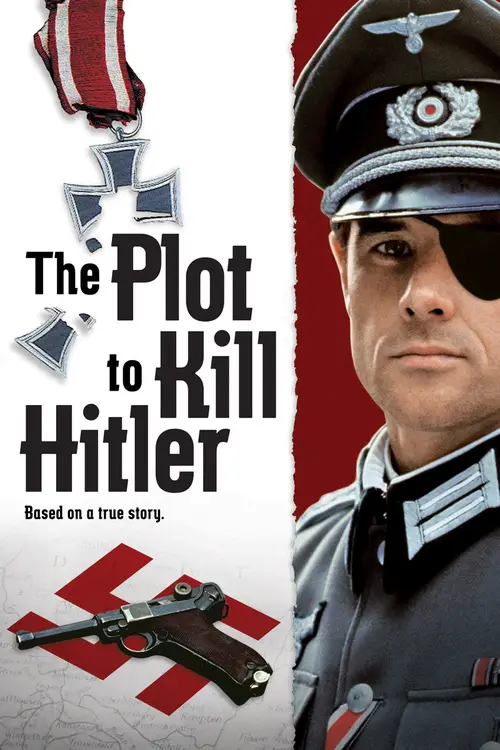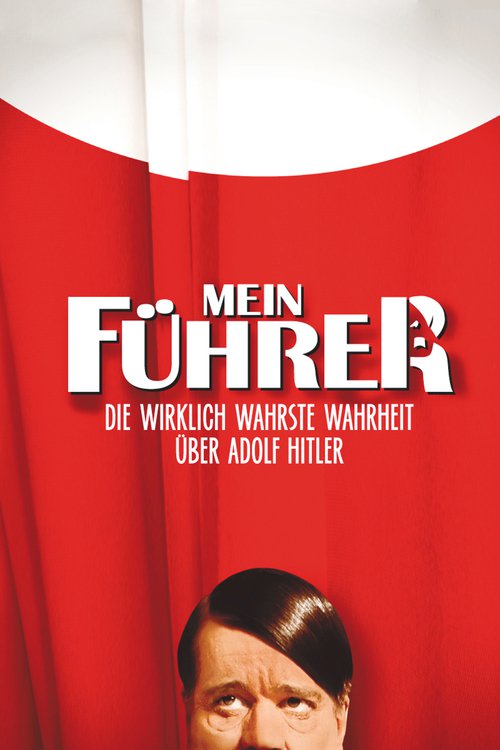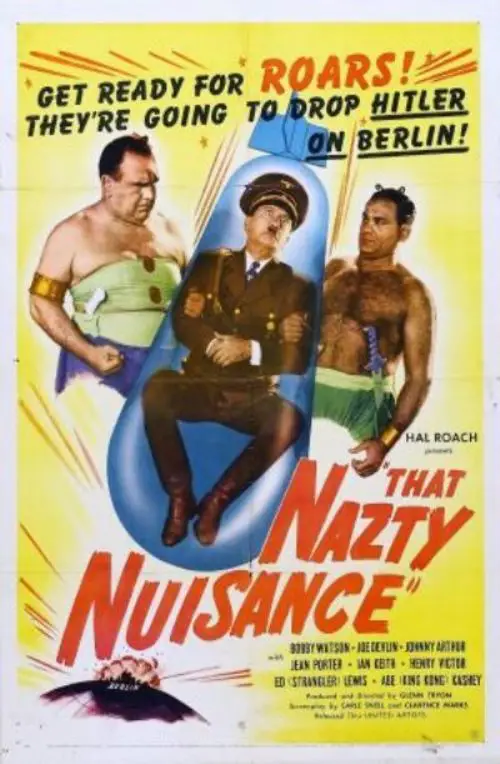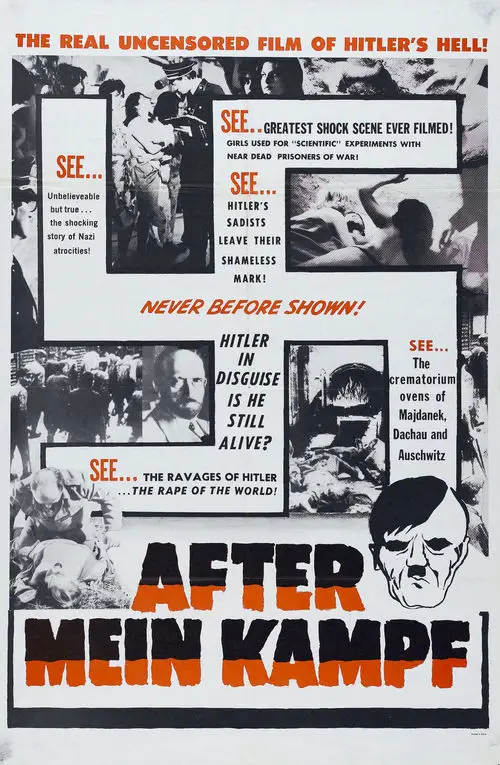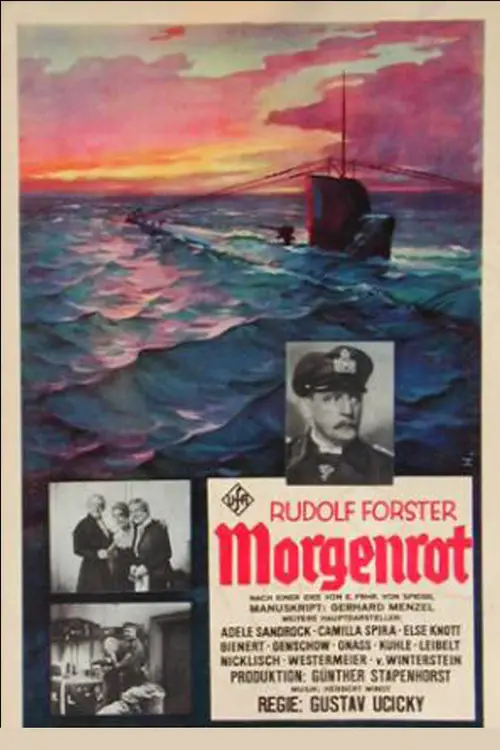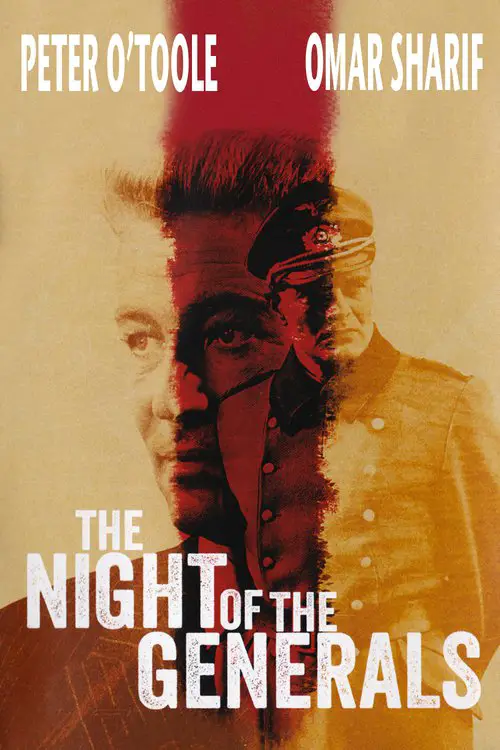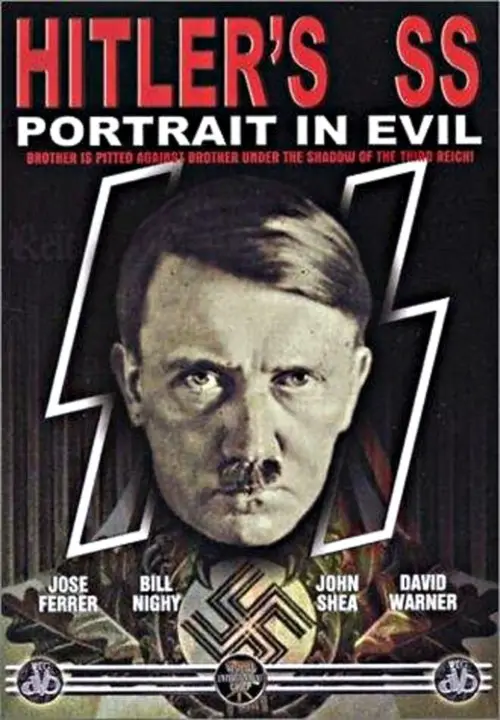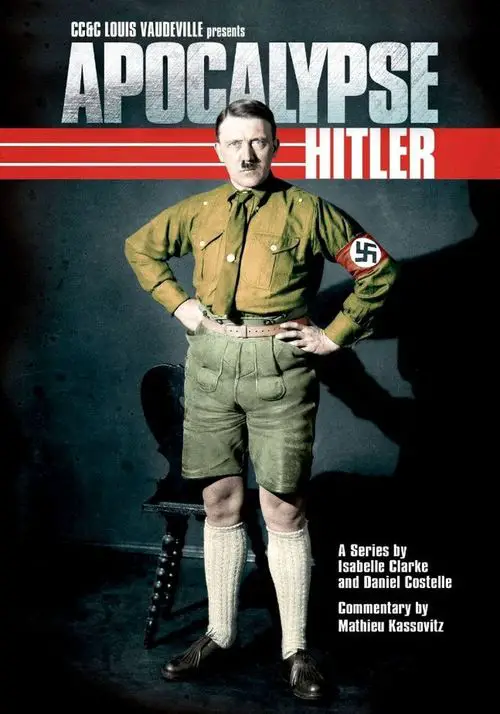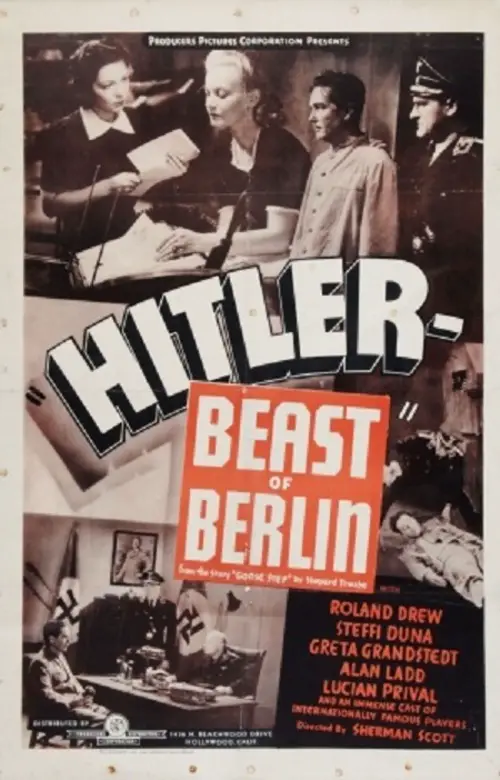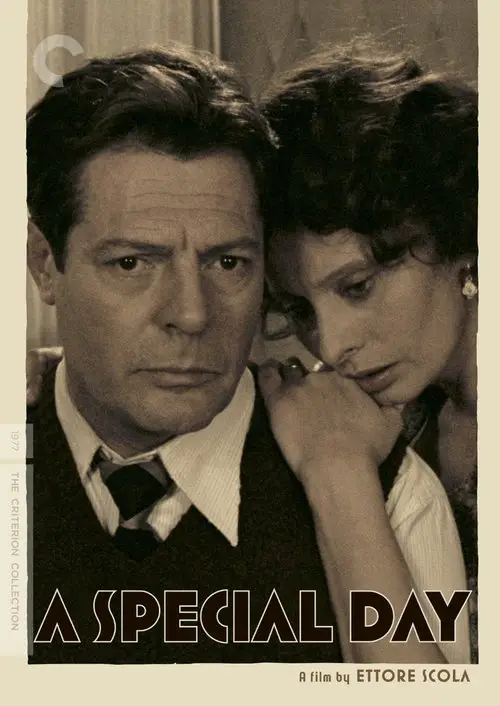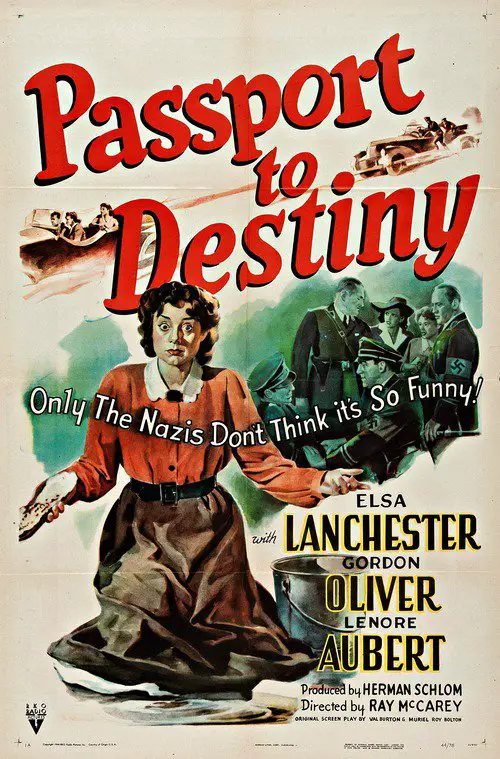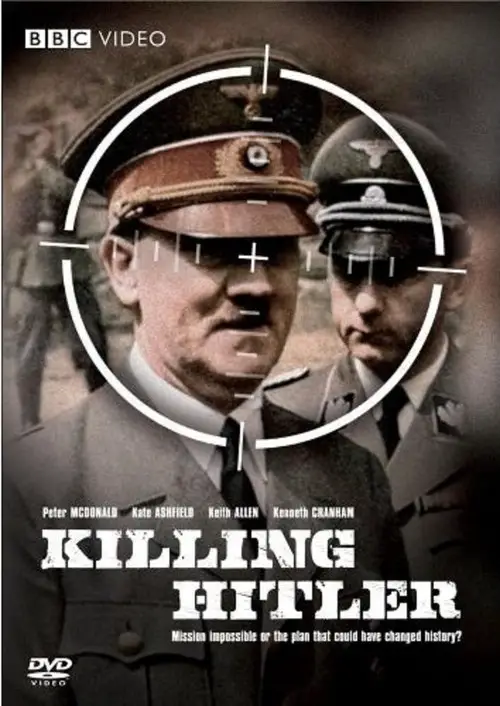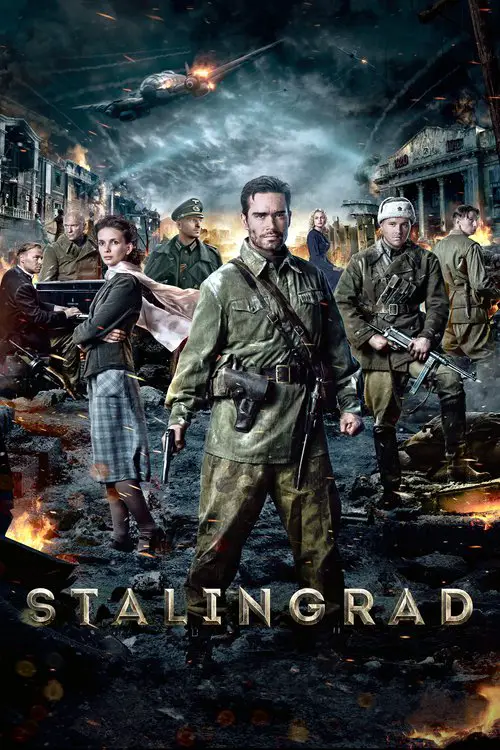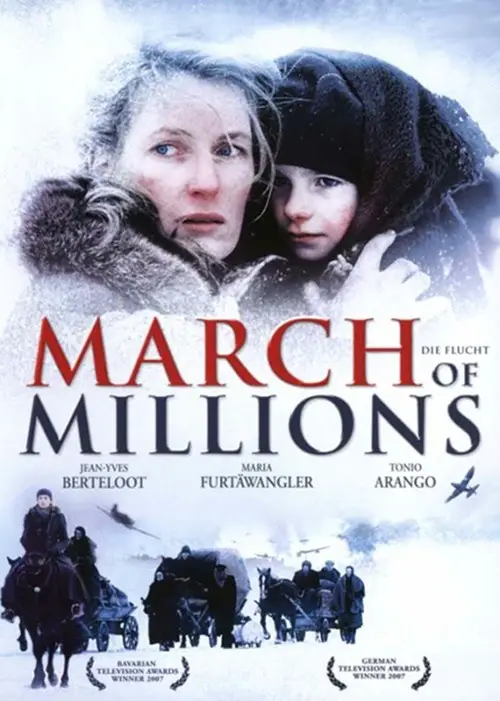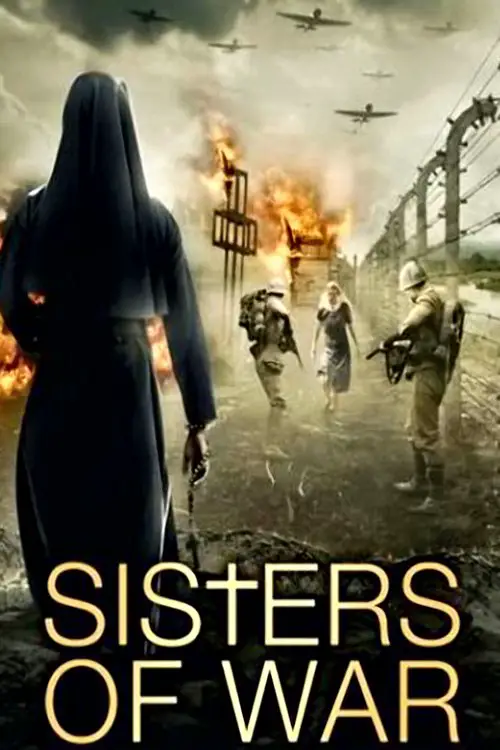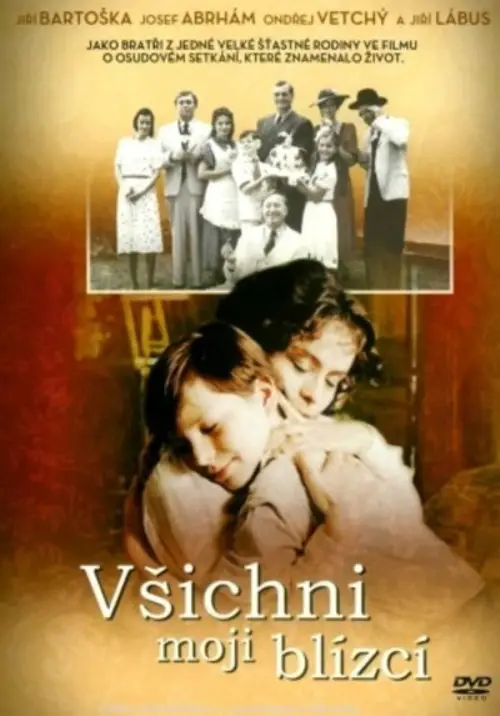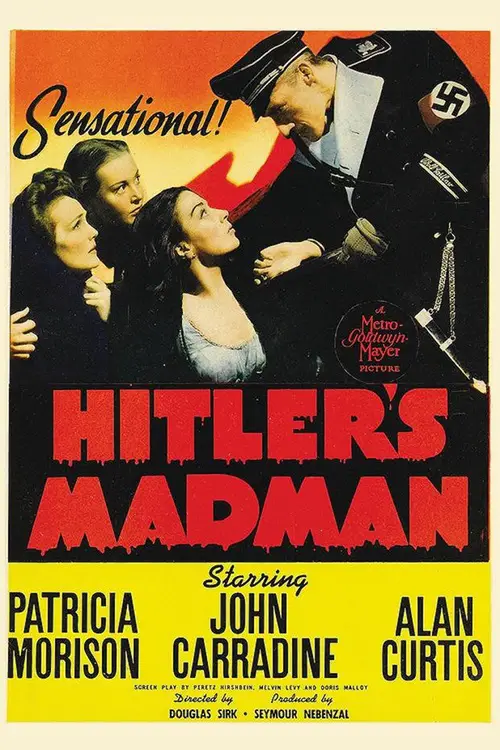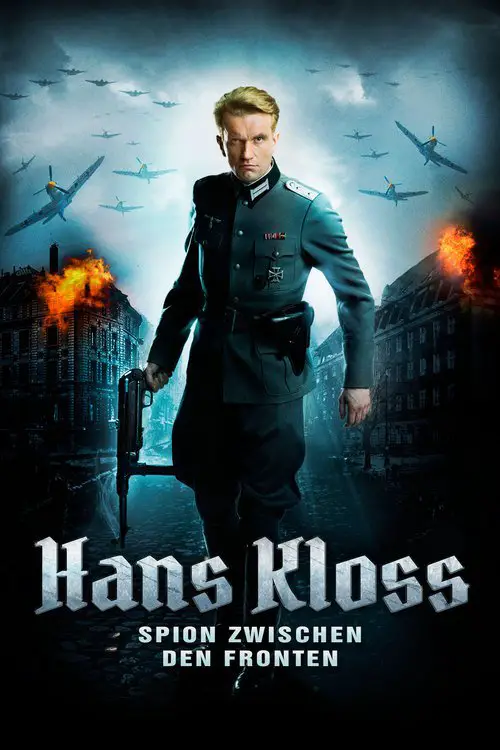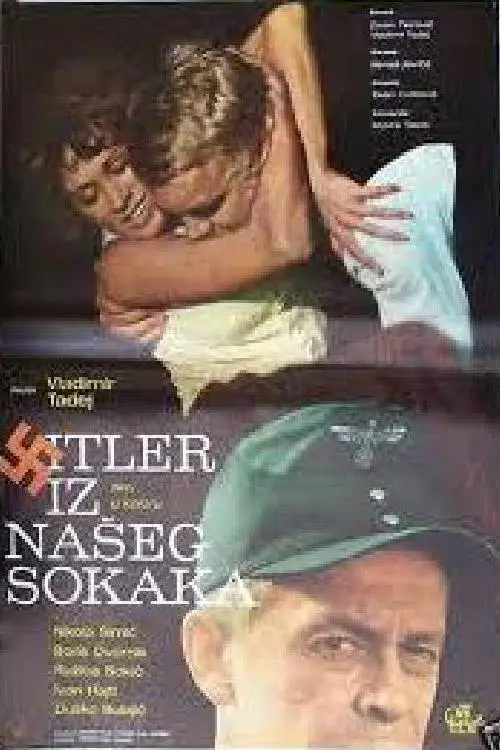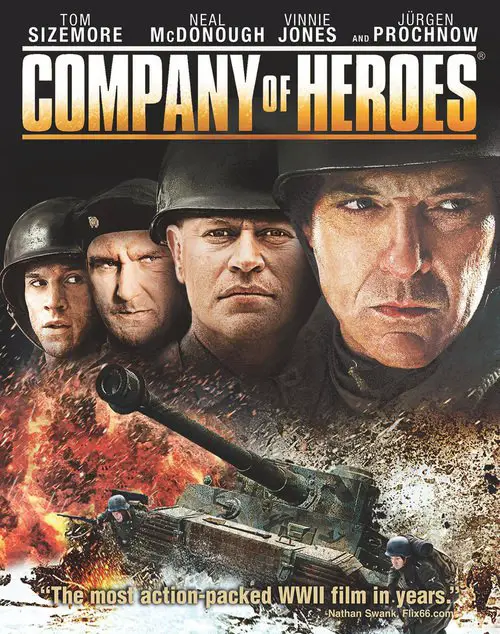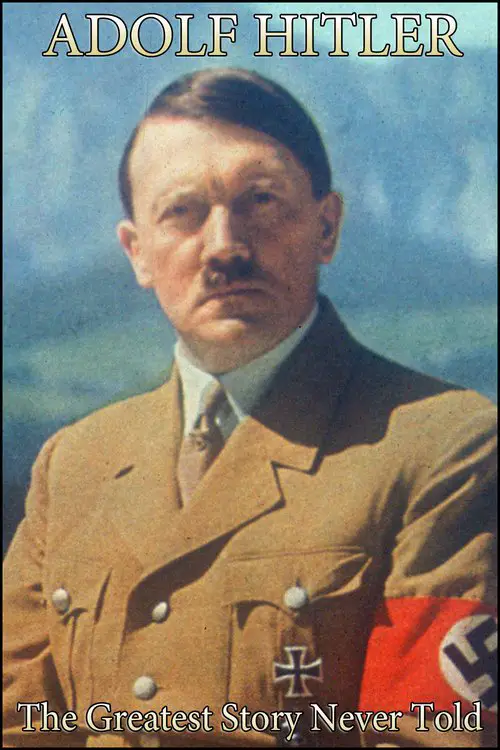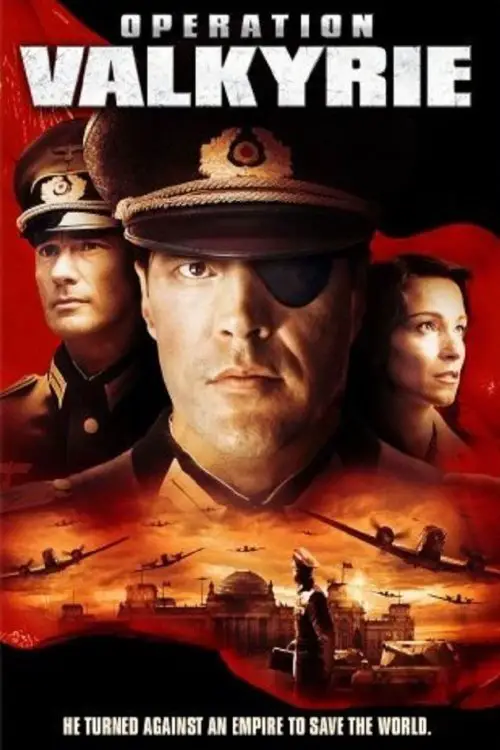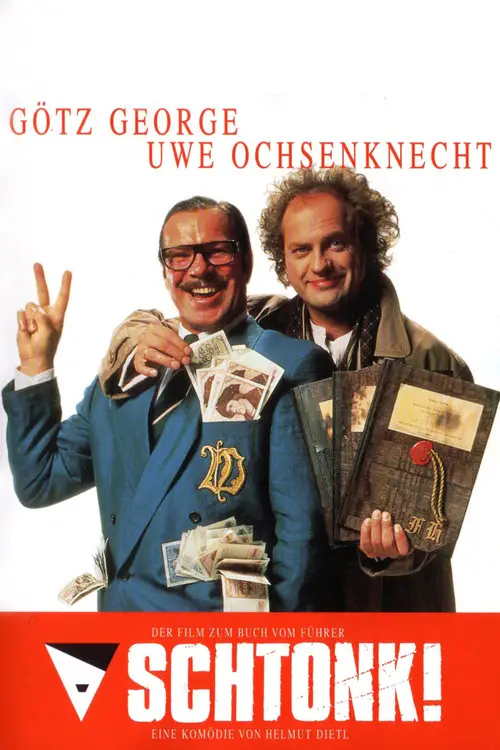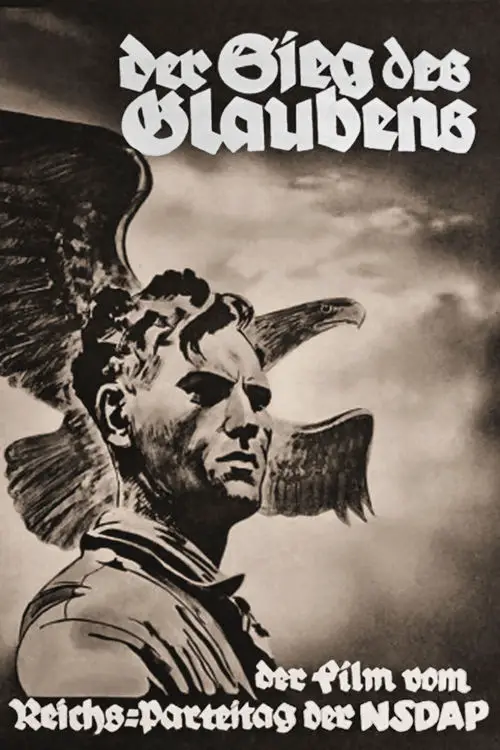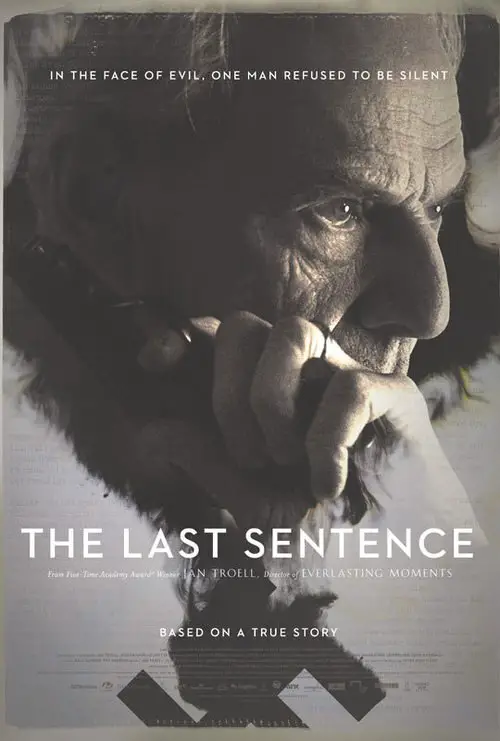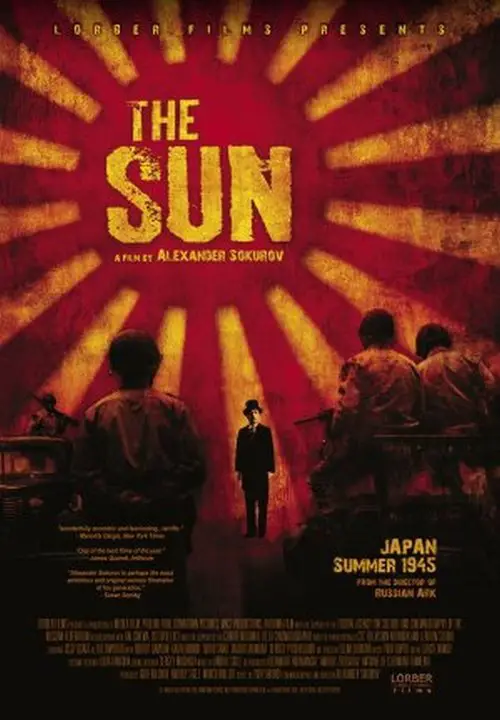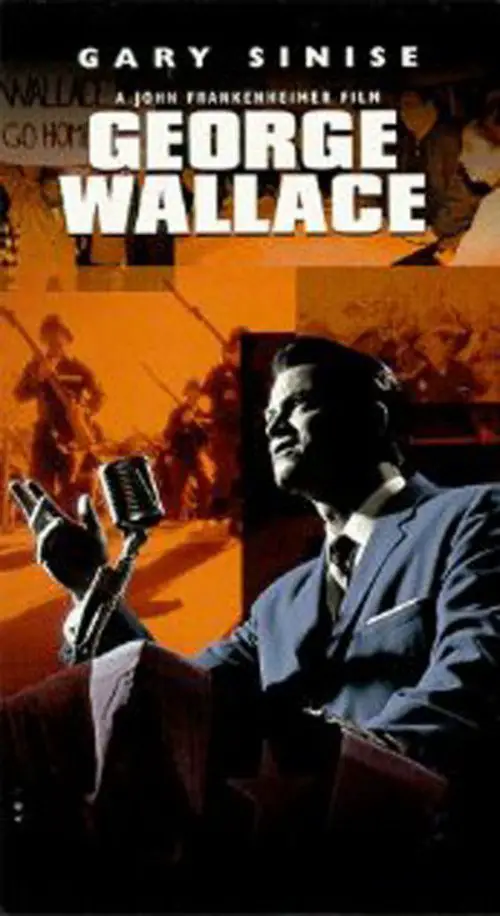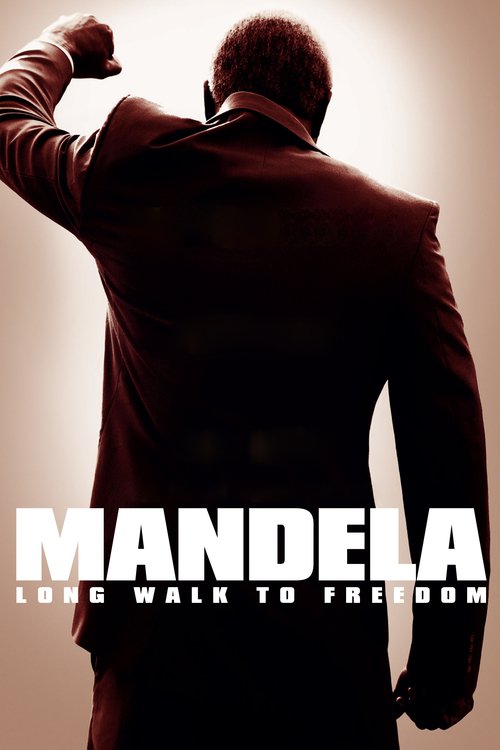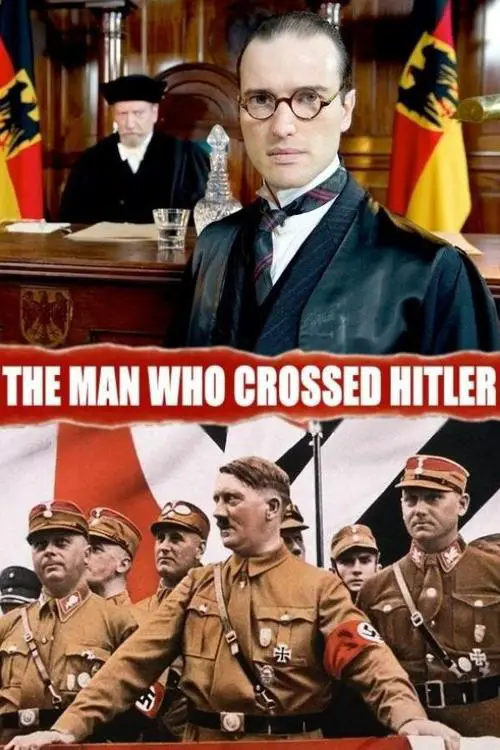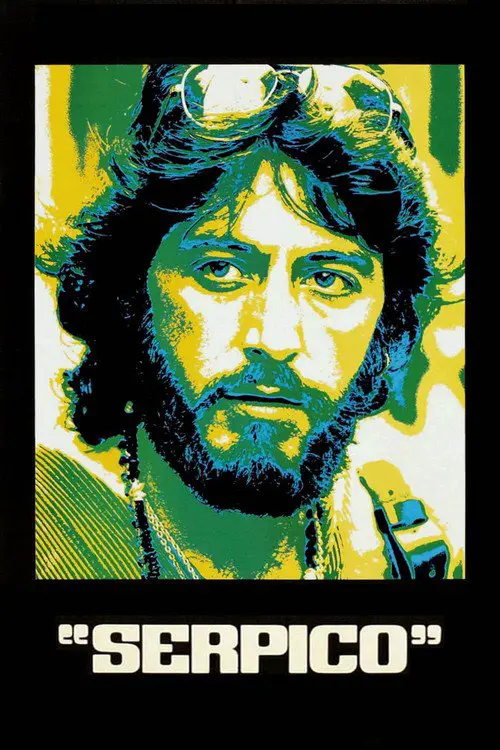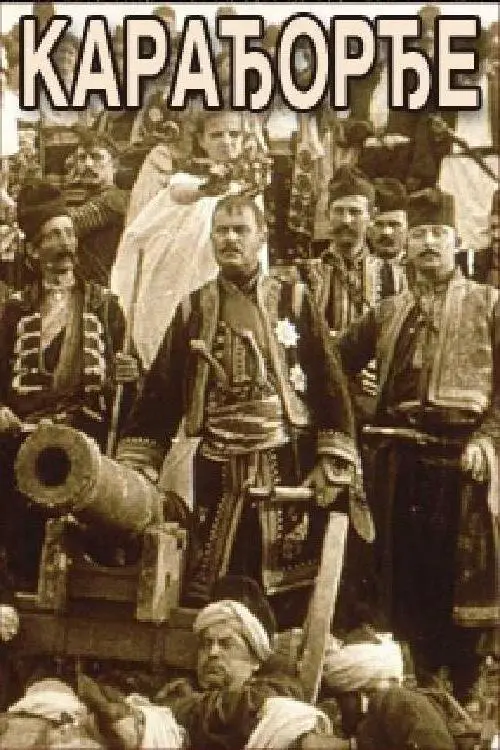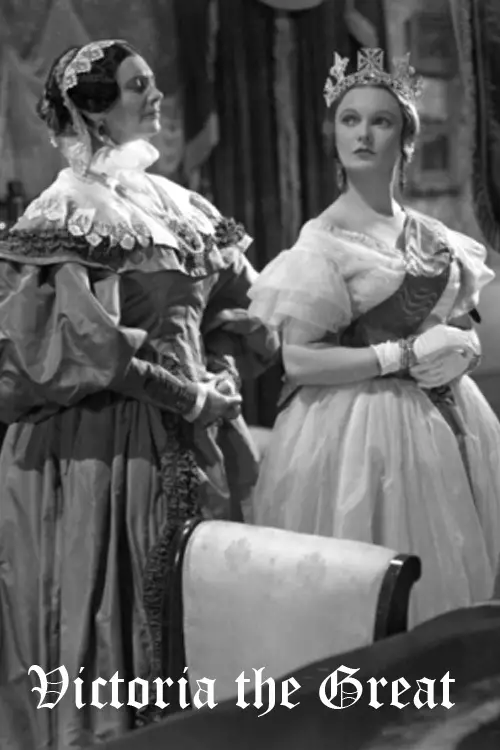Hitler (1962)
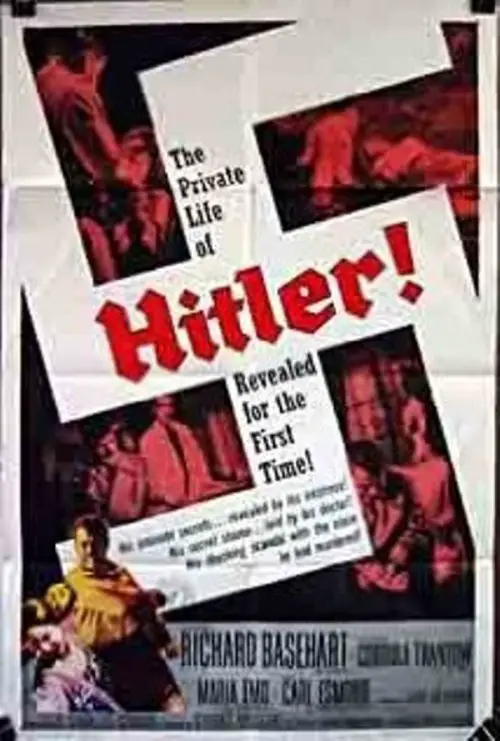
Similar movies
The movie describes the life of Adolf Hitler from childhood to manhood, and his rise to power. From his poor childhood in Austria, the first world war from his point of view, we see how Hitler was transformed from a poor soldier into the leader of the Nazis, and how he survived all attempts to kill him. We learn of his relationship with his mistress Eva Braun, his decisions and of his enemies inside the Nazi party.
Wounded in Africa during World War II, Nazi Col. Claus von Stauffenberg returns to his native Germany and joins the Resistance in a daring plan to create a shadow government and assassinate Adolf Hitler. When events unfold so that he becomes a central player, he finds himself tasked with both leading the coup and personally killing the Führer.
In April of 1945, Germany stands at the brink of defeat with the Russian Army closing in from the east and the Allied Expeditionary Force attacking from the west. In Berlin, capital of the Third Reich, Adolf Hitler proclaims that Germany will still achieve victory and orders his generals and advisers to fight to the last man. When the end finally does come, and Hitler lies dead by his own hand, what is left of his military must find a way to end the killing that is the Battle of Berlin, and lay down their arms in surrender.
Their family name alone evokes horror: Himmler, Frank, Goering, Hoess. This film looks at the descendants of the most powerful figures in the Nazi regime: men and women who were left a legacy that indelibly associates them with one of the greatest abominations in history. What is it like to have grown up with a name that immediately raises images of genocide? How do they live with the weight of their ancestors' crimes? Is it possible to move on from the crimes of their ancestors?
Romm's "Ordinary Fascism" pulls out all the stops in its selection of documentary material to draw the viewer not only into absolute horror about fascism and nazism in the 1920s-1940s Europe, but also to a firmest of convictions that nothing of the sort should be allowed to happen again anywhere in the world.
The series is based on a true story of a Russian spy Colonel Isaev (Stirlitz) in Fascist Germany during 17 days in very end of WWII. Stirlitz has worked his way to the very top of the Fascist hierarchy without being caught. However, his "colleagues", top Hitler's officers Borman, Mueller, Schellenberg are beginning to suspect him. Stirlits is constantly walking on the edge between his two identities, sending information to Russia, while skillfully maintaining the appearance of loyalty to fascist regime.
Documentary using only original colour footage charts the 12 years from Adolf Hitler's rise to power to the fall of Berlin in 1945. Complemented by eyewitness material, tracks the dramatic transformation of Germany into a Nazi state, looks into Hitler's relationship with his lover Eva Braun and replicates pivotal events, including Nazi rallies, the invasion of Poland, Hitler's meeting with Lloyd George, the horrors of Buchenwald concentration camp, Warsaw's Jewish Ghetto, the Battle of Britain and the fall of Berlin.
A group of German boys is ordered to protect a small bridge in their home village during the waning months of the second world war. Truckloads of defeated, cynical Wehrmacht soldiers flee the approaching American troops, but the boys, full of enthusiasm for the "blood and honor" Nazi ideology, stay to defend the useless bridge.
The invasion of a village in Byelorussia by German forces sends young Florya (Alexei Kravchenko) into the forest to join the weary Resistance fighters, against his family's wishes. There he meets a girl, Glasha (Olga Mironova), who accompanies him back to his village. On returning home, Florya finds his family and fellow peasants massacred. His continued survival amidst the brutal debris of war becomes increasingly nightmarish, a battle between despair and hope.
"The Plot to Kill Hitler" is a historical recreation of the 1944 attempt by several German High Command Officers to assassinate Adolf Hitler and take control of the German government. Lead by Wehrmacht Colonel Count von Staufenberg, this group of brave men managed to plant a bomb in Hitler's battlefield headquarters. By sheer luck, Hitler survived the blast and the SS quickly arrested and executed all those involved in the affair.
Hitler no longer believes in himself, and can barely see himself as an equal to even his sheep dog. But to seize the helm of the war he would have to create one of his famous fiery speeches to mobilize the masses. Goebbels therefore brings a Jewish acting teacher Grünbaum and his family from the camps in order to train the leader in rhetoric. Grünbaum is torn, but starts Hitler in his therapy ...
Germany's Adolf Hitler, with his Axis-stooges, Italy's Mussolini and Japan's Suki Yama, although he tried to avoid taking them, is on his way, via submarine, to a tropical country to negotiate a treaty with the High Chief Paj Mab. However, an American P.T-boat crew is already there and have some plans for schickenbit-grubber and his buddies.
Released three days after Adolf Hitler became Reichskanzler, it was the first film to have its screening in Nazi Germany. It became a symbol of the new times touted by the Nazi regime. The title (literally "morning-red") is the German term for the reddish coloring of the east sky about a half hour before the sunrise. Dawn was the U.S. title. In 1915, Captain Liers, commander of a submarine is leaving his hometown, where he, his 2nd officer and the radio-operator, spend their shore leave. On patrol they sink a British armored cruiser, but while returning to their harbor, they're attacked. They're able to sink it, but the trap has alarmed a destroyer, that sinks their sub. The sub lays on the sea bed at 200 feet, and except for the bridge, it is full of water. 10 members of the crew survived, but there are only 8 rescue devices. Liers gives the order, that the crew shall use them, but they disobey, either all get out or nobody...
The murder of a prostitute in Nazi occupied Warsaw draws Wehrmacht Major Grau into an investigation where the evidence points to one of three high ranking Generals. The trail leads Grau from Warsaw to Paris and straight into the 1944 plot to assassinate Adolf Hitler, of which two of the Generals are deeply involved. Grau's case goes unfinished and it is not until 1965 when the true killer is brought to justice.
The two-part TV movie Hitler's SS: Portrait in Evil crystallizes that evil by concentrating on two Berlin brothers. In 1931, Helmut Hoffman (Bill Nighy) a brilliant student and self-styled opportunist, joins Hitler's SS. At the same time, his younger brother Karl (John Shea), a top athlete and idealist, becomes a chauffeur for the "S.A." (storm troopers).
Chronicles Hitler's life as a failed painter and far-right activist up to his election as Chancellor of Germany, leading to his relentless rise to power, culminating in the beginning of World War II. Part 1: The Menace - The trenches gave him his self-appointed mission to save Germany, but it was Hitler's natural ability to address the crowds that allowed him to take advantage of a devastated population. Part 2: The Furher - Prior to his new-found prominence, Hitler was considered a mad man on the fringe of German political life. So how did he push his way into power and plunge the world into war?
Hans Memling, a young intellectual, patriotic German, is secretly opposed to the Nazi regime. With the aid of Gustav Schultz, Father Pommer, Anna Wahl and others, he is gleaning accurate information from foreign radio broadcasts and distributing it through Germany with an underground-press operation. He convinces his brother-in-law Karl Bach, the brother of his wife Elsa, that Hitler is leading Germany toward a second world war. Karl, in love with Anna, joins the movement, determined to restore German culture and save the people from the brutality of the Storm Troopers and the Gestapo. The group has an inside link through Albert Stalhelm, a Storm Trooper and one of Hitler's Elite Guards. Albert is sickened by the brutalities he sees and wants to resign and flee Germany, but Hans persuades him to remain until they can find a replacement. He agrees, but warns the group that he is forced to join in the Nazi orgies and liquor loosens his tongue...
The film is set during the late 1930s: the occasion is the first meeting between Mussolini and Hitler. Left alone in her tenement home when her fascist husband runs off to attend the historic event, Sophia Loren strikes up a friendship with her homosexual neighbor Mastroianni. As the day segues into night, Loren and Mastroianni develop a very special relationship that will radically alter both of their outlooks on life.
Drama set in 1942, during one of the most important battles of World War II, which stopped the progress of Nazi forces and turned the tide of war in favor of the Allies. The Soviet army mounts a counter-attack on the Nazi forces that occupy half of Stalingrad on the other side of the Volga, but the operation to cross the river is unsuccessful. A few soldiers who managed to get to the other side take refuge in a house on the bank of Volga. Here they find a girl who didnât escape when the Germans came. While the whole might of the German army descends onto them, the heroes of Stalingrad experience love, loss, joy and the sense of ultimate freedom that can only be felt by those about to die. They defend the house at all costs while the Red Army prepares for another attack.
A veteran sergeant of the World War I leads a squad in World War II, always in the company of the survivor Pvt. Griff, the writer Pvt. Zab, the Sicilian Pvt. Vinci and Pvt. Johnson in Vichy French Africa, Sicily, D-Day at Omaha Beach, Belgium and France, ending in a concentration camp in Czechoslovakia where they face the true horror of war.
Sisters of War is a World War II memoir that re-creates events in New Britain during the Japanese invasion and occupation. It is a story about the Daughters of Our Lady of the Sacred Heart, especially Sister Berenice Twohill and her working friendship with nursing sister, Lorna Whyte. The Australians pulled out of the mission in Vunapope outside Rabaul, leaving the nurses and wounded who took refuge there. They were captured and about to be executed when Bishop Leo Scharmach MSC bluffed the Japanese by saying that he was the representative of Hitler and his people could not be executed.
Told from the perspective of man reflecting on his childhood in Prauge in the early years of World War 2 and the eventual destruction of his family as the Nazis rise to power. The storyline focuses heavily on Jewish-Czech Silberstein family members. Drama was filmed on the real events as a tribute to Mr. Nicholas Winton, the British humanitarian who organized the rescue of 669 children, most of them Jewish, from Czechoslovakia on the eve of the Second World War in an operation later known as the Czech Kindertransport from German-occupied Czechoslovakia and likely death in the Holocaust.
Before and during WW II and the German occupation of Serbia, in a village in Vojvodina, inhabitants are separated based on their nationality. Local Volksdeutschers (ethnic Germans) enlist with the Nazi occupiers. The village bum, Leksi, jumps at the opportunity to put on a uniform and parade around with a gun. Leksi gets into an argument with villagers Marko and Joca, who devise a plan to get rid of him. At the same time, Marko tries to seduce Leksi's wife, Anika.
Far outside what's normally taught as "history", this 6-hour documentary attempts to explain what's normally glossed over - Germany's actions prior to WWII, Hitler's popularity, the support of the Nazis by the Germans, the basis for hardline Nazi stances against Jews, and why Nazism was such a danger to the established world powers. It chronicles the German WWI defeat, communist attempts to take over Germany; hyperinflation during the Weimar Republic, widespread unemployment and misery that served as the foundation of Nazi principles, and Hitlerâs amazing rise to power. It also reveals a personal side of Hitler: his family background, his artwork and struggles, and what motivated him to pursue a career in politics. While open to criticism for being "pro-Nazi" in its perspectives, the documentary does present many factual foundations for those perspectives, highlighting an endless list of hypocrisies and double-standards imposed on Germany in the years before, during, and after WWII.
In 1944, a group of high command officers plot an attempt against Hitler, and one of the leaders of the conspiracy, Stauffenberg (Sebastian Koch), goes to a meeting with the Fuhrer in charge of exploding the place. However, Hitler survives and the officers are executed. This unsuccessful operation was called "Valkyrie Operation", and this realistic movie discloses this true event.
Schtonk! is a farce of the actual events of 1983, when Germany's Stern magazine published, with great fanfare, 60 volumes of the alleged diaries of Adolf Hitler â which two weeks later turned out to be entirely fake. Fritz Knobel (based on real-life forger Konrad Kujau) supports himself by faking and selling Nazi memorabilia. When Knobel writes and sells a volume of Hitler's (nonexistent) diaries, he thinks it's just another job. When sleazy journalist Hermann Willié learns of the diaries, however, he quickly realizes their potential value... and Knobel is quickly in over his head. As the pressure builds and Knobel is forced to deliver more and more volumes of the fake diaries, he finds himself acting increasingly like the man whose life he is rewriting. The film is a romping and hilarious satire, poking fun not only at the events and characters involved in the hoax (who are only thinly disguised in the film), but at the discomfort Germany has with its difficult past.
Der Sieg des Glaubens (English: Victory of Faith) (1933) is the first documentary film directed by Leni Riefenstahl, who was hired despite opposition from Nazi officials that resented employing a woman â and a non-Party member too. Her film recounts the Fifth Party Rally of the Nazi Party, which occurred in Nuremberg from 30 August to 3 September 1933.
Renowned journalist Torgny Segerstedt declares war against Hitler as he criticizes Swedish politicians who tried to look away from the tyranny of the Nazis with the good excuse of âneutralismâ. His only weapon is his pen and his life is full of gossip such as an affair with his bossâ wife, a love scandal with a secretary younger than his daughter, and the suicide of his wife. However, he continues to fight a one man battle against Hitler and the Nazi regime until his death, throwing the question âCan one person really change history?â to the audience.
The title is Adolf Hitler's question to his chief of staff Alfred Jodl on the eve of the liberation of Paris (August 25): the military governor of Paris, General Dietrich von Choltitz, had been ordered to destroy Paris rather than let it fall undamaged into the hands of the Allies, but von Choltitz disobeyed.The film follows historical events as U.S. General Dwight D. Eisenhower, head of the Allied invasion, refuses to divert troops to liberate Paris. His hand is forced by the French military leader, Philippe Leclerc, and by a Resistance uprising in the city. Von Choltitz keeps details of the uprising from the German high command in an effort to save the city being destroyed in retaliation. The film follows his turmoil as a soldier and as the man who doesn't wish to be seen by history as the cause of a beautiful city's destruction.
The Sun (Russian: СóлнÑе, Solntse) is a 2005 Russian biographical film depicting Japanese Emperor ShÅwa (Hirohito) during the final days of World War II. The film is the third drama in director Aleksandr Sokurov's trilogy, which included Taurus about the Soviet Union's Vladimir Lenin and Moloch about Nazi Germany's Adolf Hitler.
George Wallace is a 1997 television film starring Gary Sinise as George Wallace, the former Governor of Alabama. It was directed by John Frankenheimer, who won an Emmy award for it; Sinise and Mare Winningham also won Emmies for their performances. The film was based on the 1996 biography Wallace : The Classic Portrait of Alabama Governor George Wallace by Marshall Frady, who also co-wrote the teleplay. Frankenheimer's film was highly praised by critics: in addition to the Emmy awards, it received the Golden Globe for Best Miniseries/Motion Picture made for TV. Angelina Jolie also received a Golden Globe for her performance as Wallace's second wife, Cornelia.
The film is a biography of Pope John Paul II. It starts in 1926 when the boy Karol Wojtila was celebrating Christmas with his father in Poland. Some years later Nazi Germany attacks Poland and invades the country while Wojtila seeks refuge at the house of Cardinal Wyszynski. Also appear all the other important stations of the life of the Pope.
In the summer of 1931, with Germany on the brink of economic collapse, and the city of Berlin turning into a paramilitary war-zone, audacious young prosecutor Hans Litten (Stoppard) chose to summon a star witness to a trial of Nazi thugs. In spite of the risk to his own safety and against the advice of those who love him, Litten forced rising political star Adolf Hitler (Hart) to make a sensational appearance in the witness stand of Berlin's central criminal court. Litten aimed to expose the true character of Hitler and his politics to the German public, to reveal his hypocrisy and his violent ambitions, and in doing so, halt the electoral success of the Nazi Party. In a humiliating and hostile cross-examination, Hitler was forced to account for his political beliefs, his contempt for the law and his desire to destroy German democracy. For a brief moment, Hitler's political future was genuinely in the balance.
Serpico is a 1973 American biopic directed by Sidney Lumet and starring Al Pacino. It's based on Peter Maas' biography of NYPD officer Frank Serpico, who went undercover to expose corruption in the force. The film and its principals were nominated for numerous awards, and together with Scarecrow, which was released the same year, it marked the big breakthrough for Al Pacino. The film was also a commercial success.
The film biography of Queen Victoria focussing initially on the early years of her reign with her marriage to Prince Albert and her subsequent rule after Albert's death in 1861. The film was released in the year of King George VI's coronation, which was also the centennial of Victoria's own accession to the throne.
© Valossa 2015–2026
| Privacy Policy



